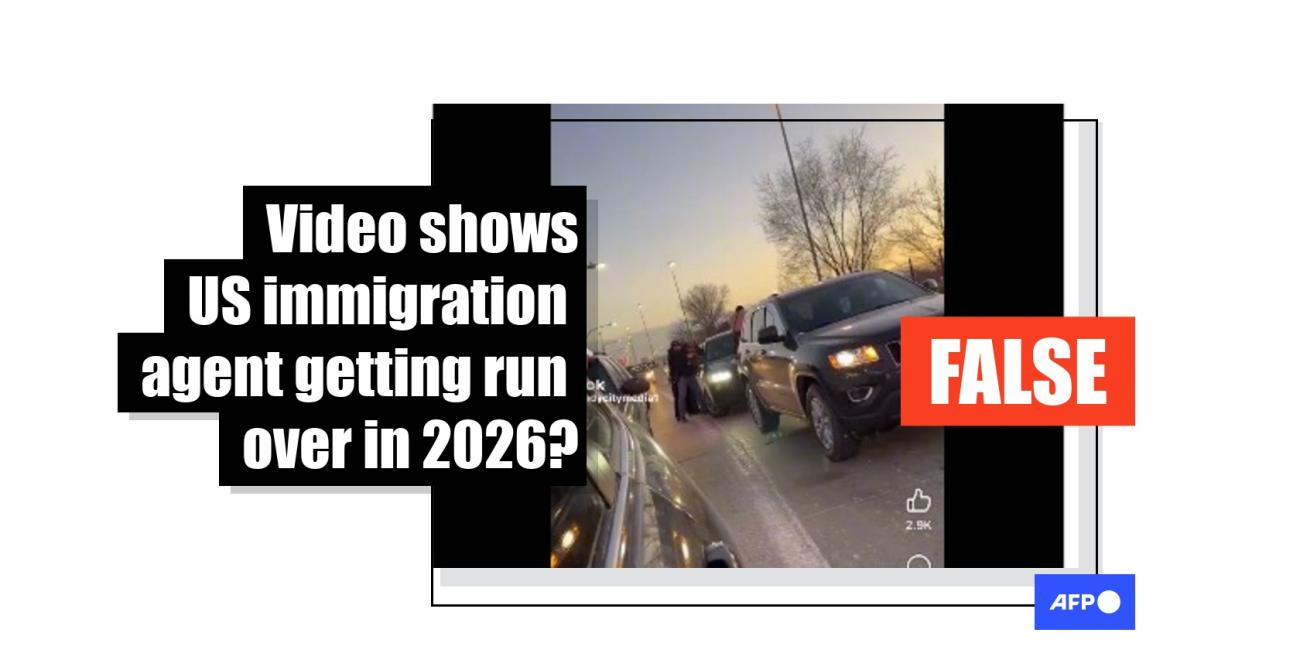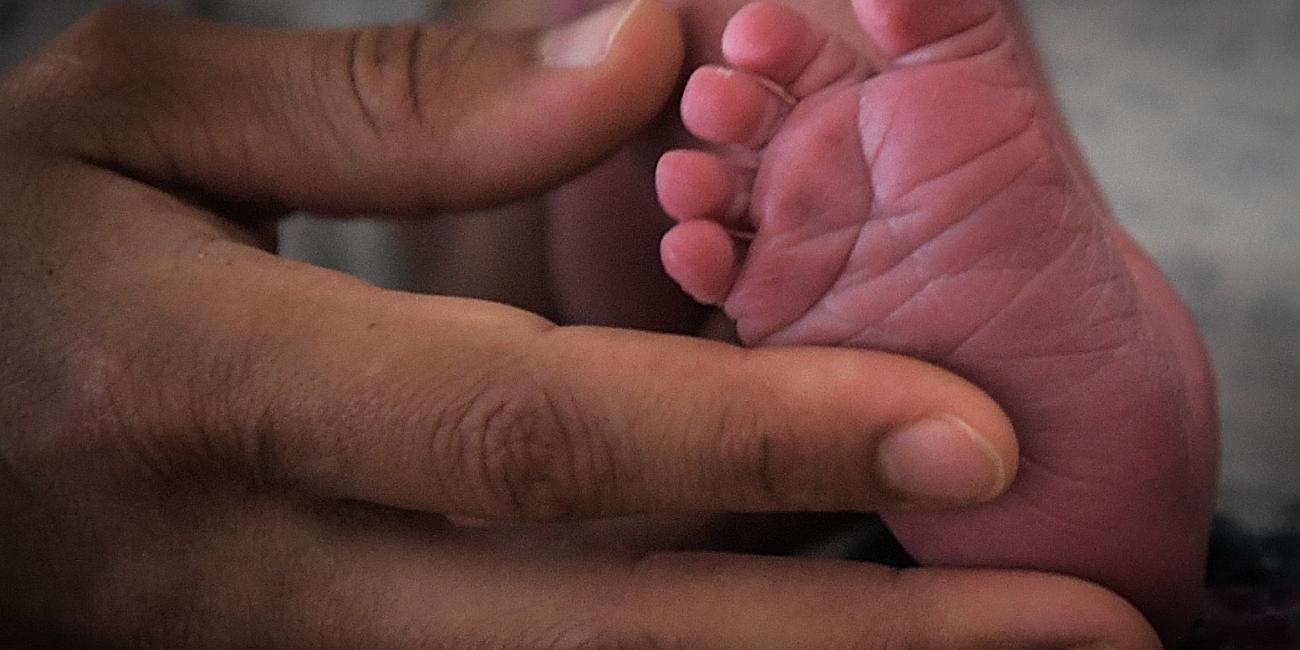
( AFP / Angela Weiss)
False and misleading claims circulate about New York ballot measure
- This article is more than one year old.
- Published on October 28, 2024 at 20:12
- 4 min read
- By Daniel Patrick GALGANO, AFP USA
"ALERT NY STATE: Democrats are trying to pass Proposition One on the November 5th ballot, which will strip parental rights and grant benefits and voting rights to illegal aliens," says an October 22, 2024 X post with thousands of interactions.
The post goes on to claim that under the proposal, schools would be barred from informing parents about a gender transition decision without the child's consent, that biological males would be allowed on female sports teams and that the measure "authorizes voting rights for non-citizens."

The same claims have circulated elsewhere on X, Instagram, TikTok, YouTube and Gettr. The New York Post also published an editorial that repeated many of the same claims about non-citizen voting.
Claims about US states allowing non-citizens to vote in federal elections have become a major theme of disinformation this election cycle. An October 2024 NPR/PBS/Marist poll showed about 52 percent of Americans are concerned or very concerned non-citizens will be able to vote this year, despite there being no evidence of mass illegal voter registration (archived here).
If approved by voters, the referendum on the New York Equal Rights Amendment would add five protected classes to the part of the state constitution that bars discrimination by government agencies and private companies (archived here). Section 11, article 1 of the document already bars unequal treatment based on race, color, creed or religion, but the proposition would add ethnicity, national origin, age, disability and sex to that list (archived here).
The new language also specifically points out that a person's sexual orientation, gender identity and reproductive health status are areas that cannot be used as a basis for discrimination. New York law already allows for abortions up to and including 24 weeks of pregnancy, but proponents of the proposition say enshrining the right in the Constitution would make it difficult for future lawmakers to repeal those protections (archived here).
"New York already has many protections in statute (in other words, in laws, not in the Constitution) for the covered classes that will be added to the Constitution through Prop 1," a spokesman for state Senator Liz Kreuger, who sponsored the amendment, told AFP in an October 24 email. "So, what Prop 1 primarily achieves is protecting those laws, for example, our abortion laws, from being changed on the whim of a future anti-abortion governor or Legislature."
Only citizens can vote
Federal law only allows US citizens to vote in federal elections, such as those for president, senators and members of Congress, but local governments -- including those in Washington, DC and Burlington, Vermont -- are generally allowed to permit people without citizenship to cast ballots in local races (archived here, here and here).
In December 2021, the New York City Council passed a measure that would allow some non-citizens to vote in local elections, but an appellate court struck it down because it violated section 2, article 1 of the New York constitution, which gives voting rights to citizens (archived here). City officials have appealed the ruling to the state's high court, but it is still in the briefing phase (archived here).
Proposition One does not propose any changes to section 2 of the New York State Constitution, and Bernadette Gargano, the vice dean for experiential education and social justice initiatives at the University at Buffalo School of Law (archived here), said it is "wrong" to claim it will lead to those without citizenship voting.
"It's a whole different section of the Constitution, the New York Constitution, that talks about voting rights, and so this would not impact or change qualifications for voting," she said on October 25.
Richard Rifkin, the legal director of the government law center at the Albany School of Law (archived here), said the addition of "national origin" as a protected class in the state constitution would be unlikely to apply to citizenship voting requirements because it has generally referred to where a person is from, not their citizenship status.
Current laws remain in place
Gargano also refuted claims about the referendum's potential impact on how doctors approach consent for gender-affirming care.
New York State law requires parental consent for any person under the age of 18 to receive medical treatment, apart from specific circumstances where the minor is pregnant, homeless or in certain runaway residential programs (archived here).
"All the existing laws about medical treatment, gender-affirming care for minors will stay in good place," she said.
Grant Reeher, a professor of political science at Syracuse University (archived here), said that while some could argue in court that the Equal Rights Amendment should overrule existing laws in areas such as parental notification for healthcare, these are "low-probability outcomes" in an October 24 email.
Rifkin agreed that the change could lead to legal challenges related to minors and medical care, but said past decisions have generally held that those younger than 18 should receive different protections from adults.
"So, for instance, age discrimination is prohibited. Does that mean a 10-year-old can get a driver's license? Or does that mean a 15-year-old can go out and buy alcohol?" he said on October 25.
"And this doesn't mean that you now have to recognize minors and give them all the rights of adults. Parental rights are not going to be removed because of this, is my view."
The New York City Bar Association also released a report debunking claims that Proposition One will allow non-citizen voting, overrule parental notification rights for minors seeking gender-affirming care and regulate participation in athletic teams (archived here).
"Prop 1 does not change existing law and has no explicit provision relating to participation on sports teams," the report said. "Prop 1 is consistent with Title IX, the controlling federal law that has already been interpreted by federal courts to require young people to play on sports teams that match their gender identity and expression."
AFP has previously debunked other claims about the 2024 US general election here.
Copyright © AFP 2017-2026. Any commercial use of this content requires a subscription. Click here to find out more.
Is there content that you would like AFP to fact-check? Get in touch.
Contact us




